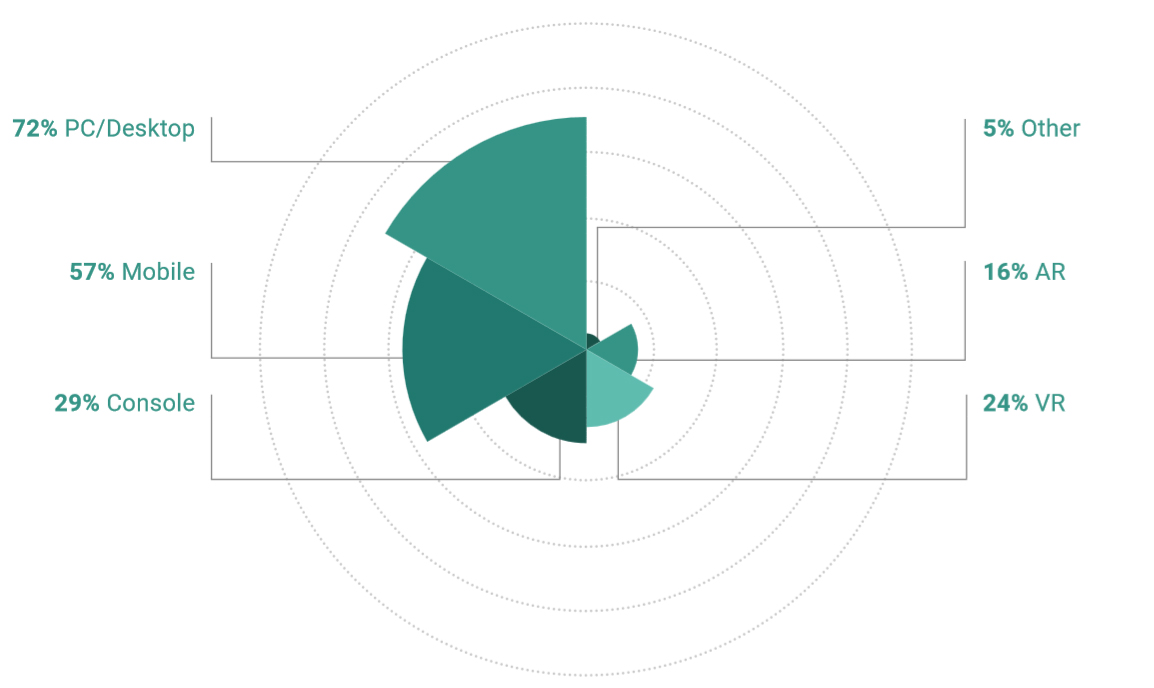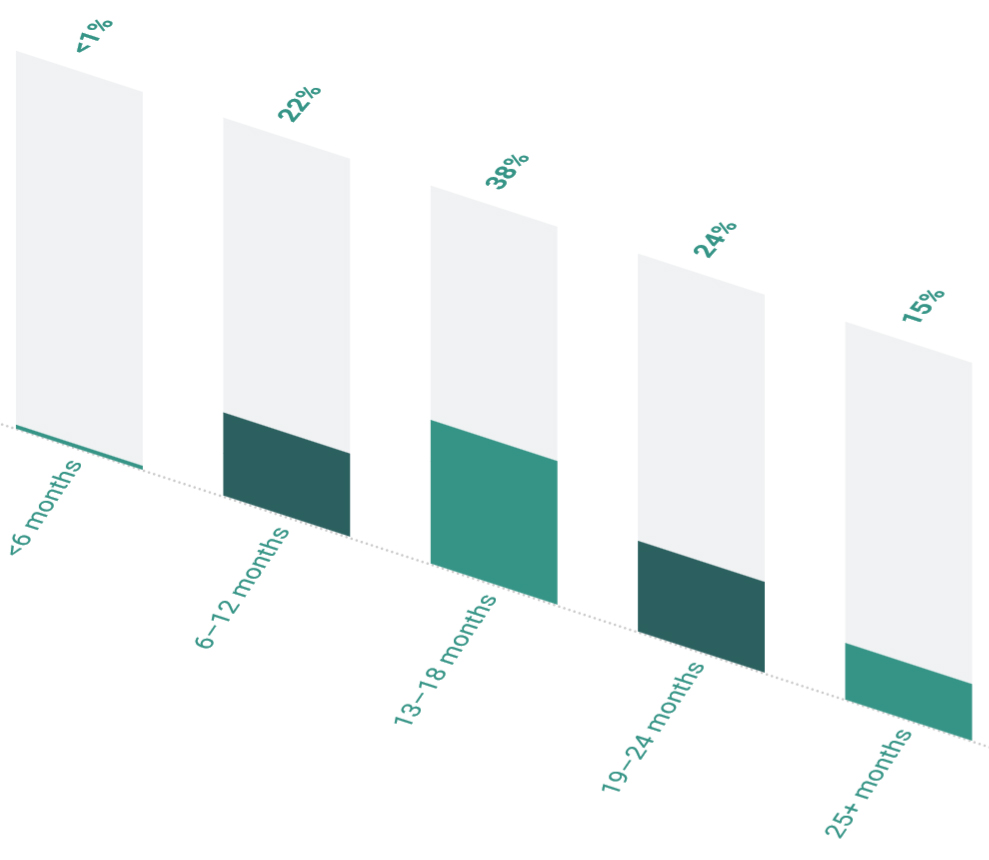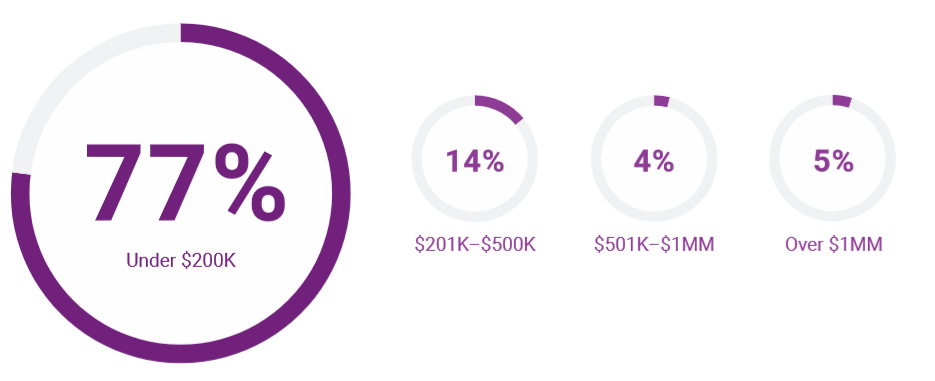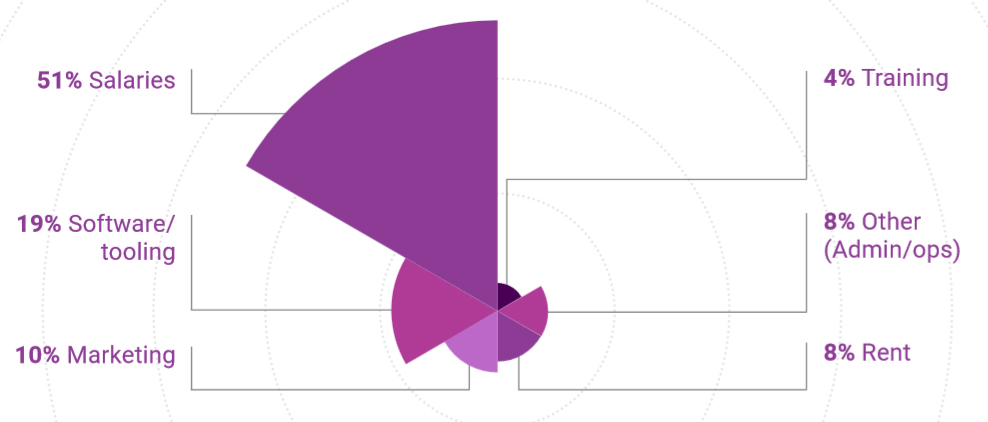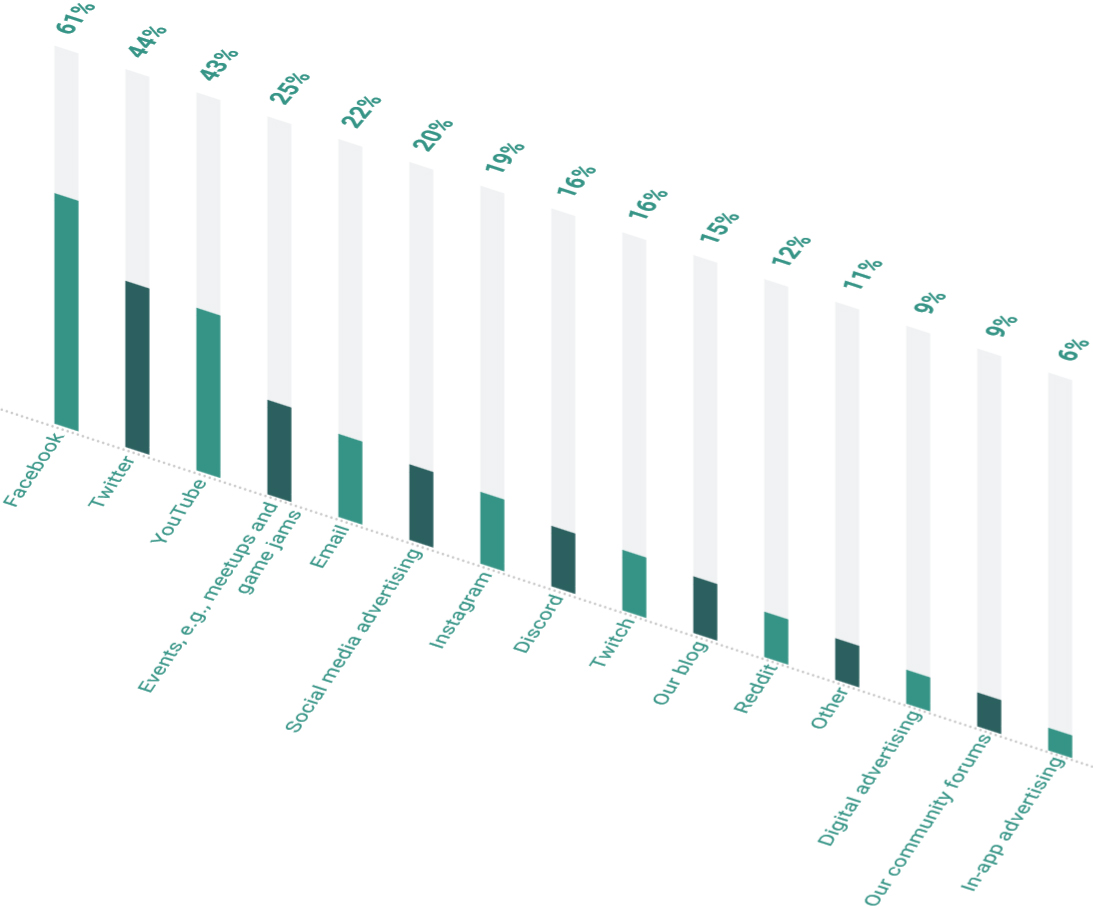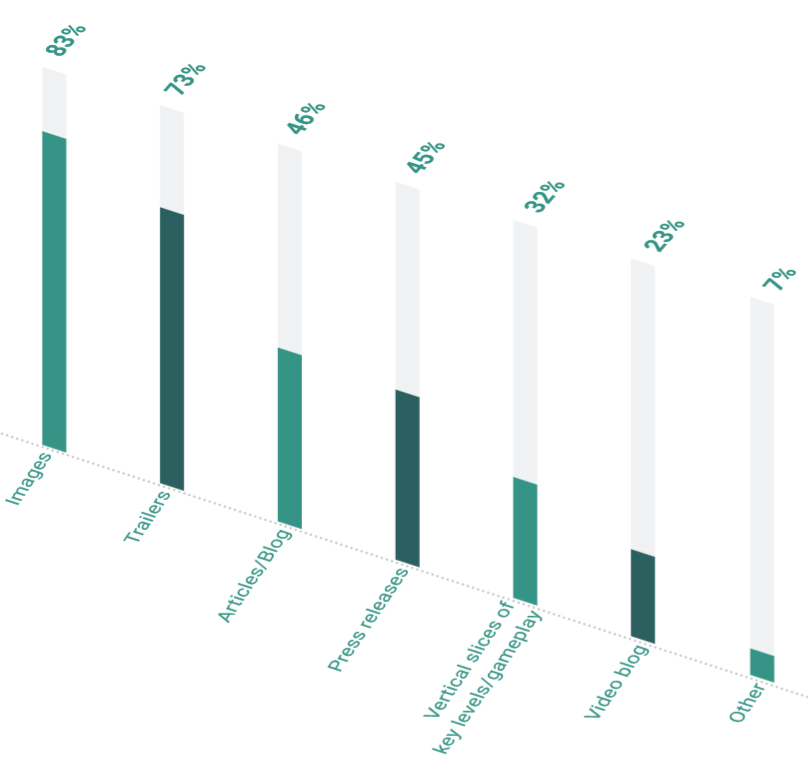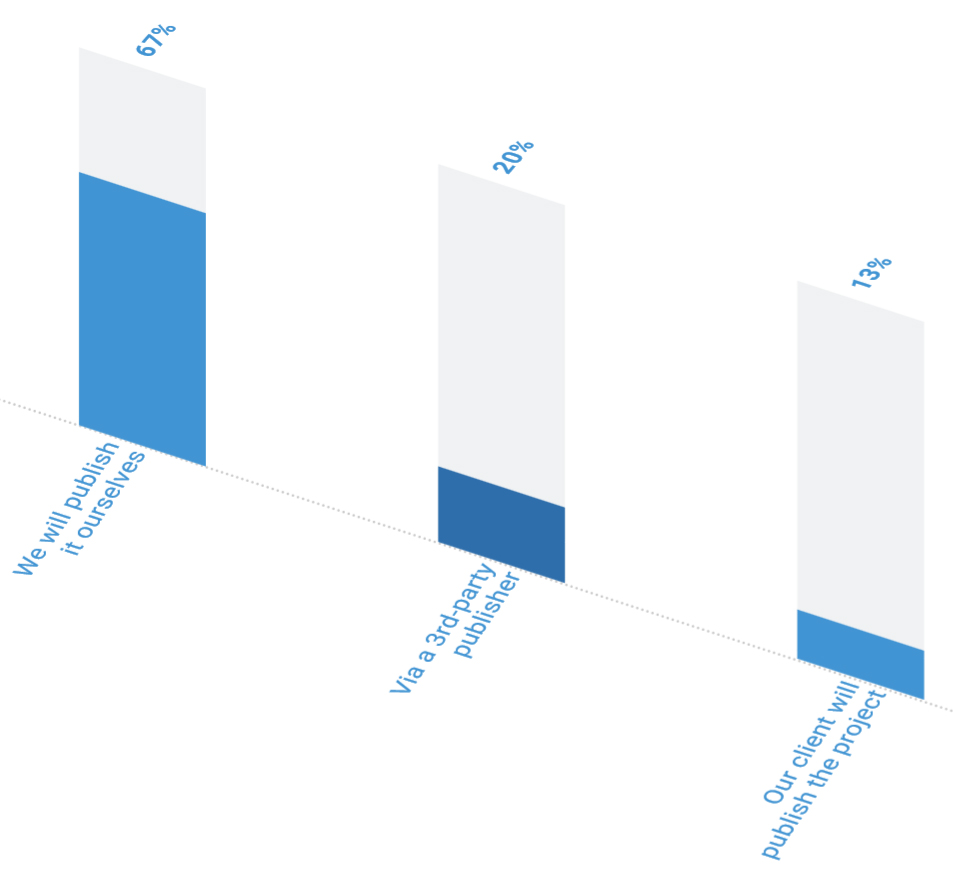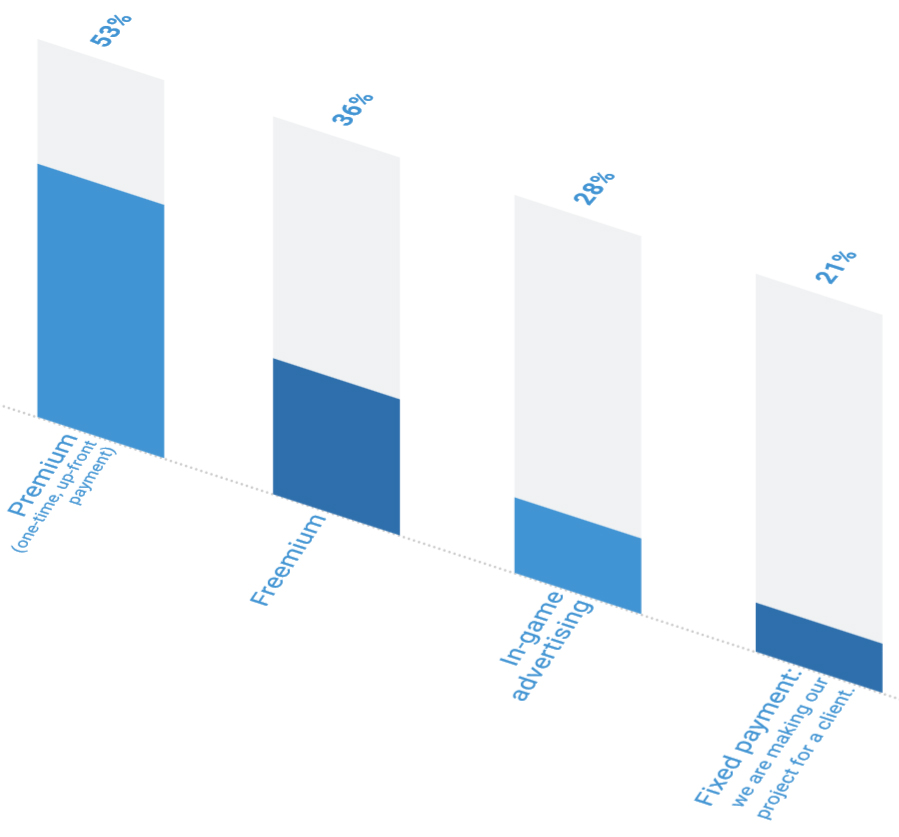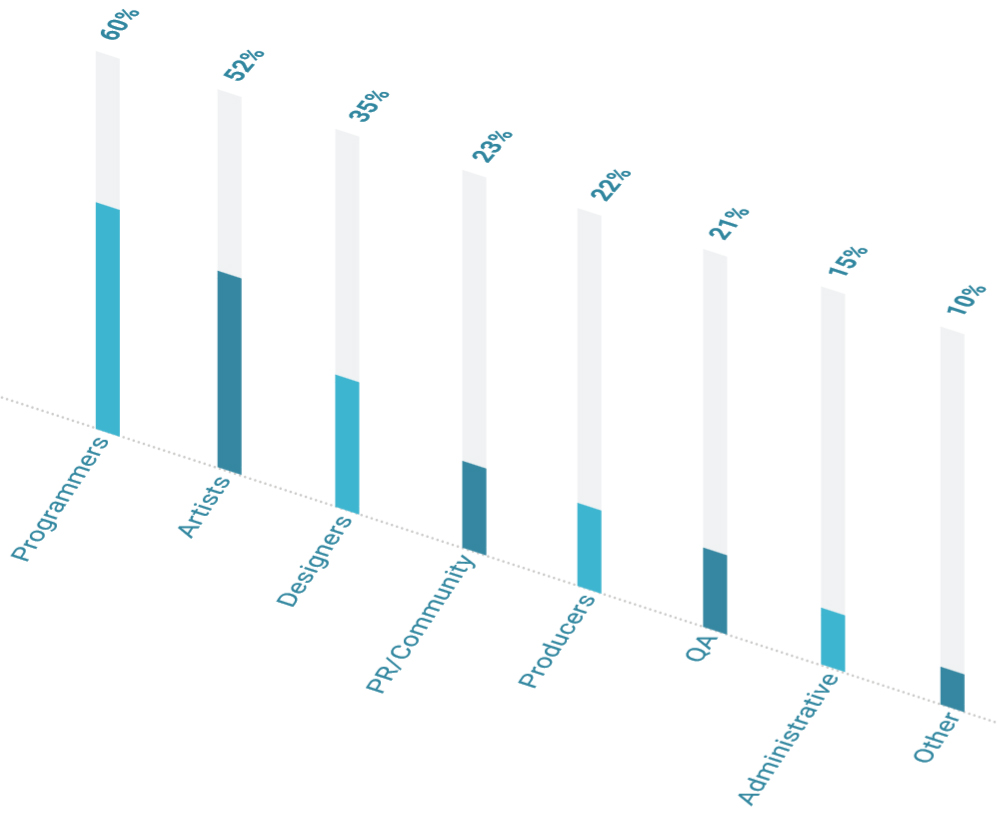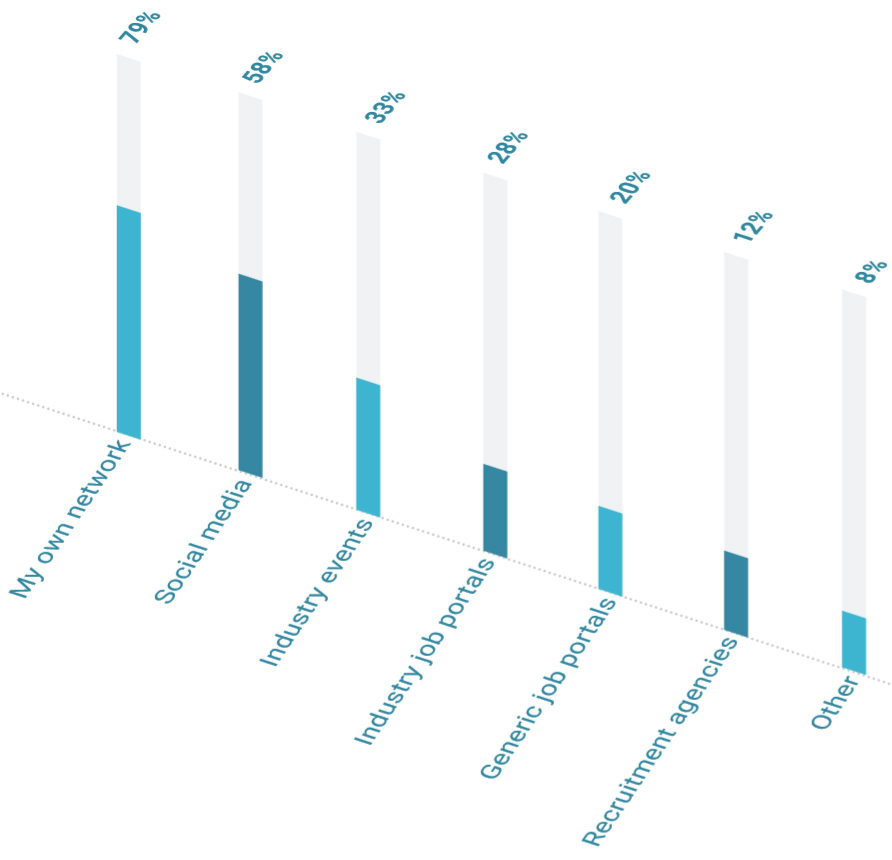A large-scale opinion poll among independent Unity developers showed that it takes more than a year to develop a good project, studios rarely develop only one game, interest in VR/AR is growing in the industry, and developers are looking for new employees among acquaintances and in social networks.
Unity conducted a survey among more than a thousand independent studios, both very small (a couple of people) and medium-sized (up to 50). The results of the report allow us to understand the conditions in which indie developers work and what decisions they make to cope with difficulties and achieve goals.
54% of respondents create 3D games, 44% work on two-dimensional titles. The most popular genre among Unity developers is action-adventure games. The exception is 2D projects, where puzzles are developed most of all.
In most of the questions, respondents could choose several answers. In the question of game genres, for example, if a team is developing an action adventure, it chose the action and adventure items
PC titles are mainly developed on Unity (72%).
More than half of the respondents also create mobile games, and 40% of them use promotional videos as the main source of monetization. As the authors of the survey note, top studios are more likely to develop mobile titles and less often desktop ones. Top-end studios are those that have been operating on the market for several years and whose DAU and revenue indicators are constantly growing.
Interestingly, quite a few developers are already experimenting with VR/AR
When asked how long the development of their main project will take in general, 60% of developers answered that less than a year and a half.
15% assume that they will spend more than two years on their game.
Almost 70% of mobile developers have set themselves deadlines of up to 18 monthsThe budget of the main project usually does not exceed $ 200 thousand.
Only 5% of studios spend more than $1 million on the game.
What is this money used for? Half is for the salary of employees. Almost 20% is spent on software and 10% on marketing. However, top studios spend 30% less than average on software, and 35% more on marketing.
Almost half of Unity developers are working on one or two projects at the same time. Representatives of top studios in 50% of cases answered that they were developing four or more games at the same time.
The answer to the question: “How many titles are you developing in addition to the main one?“According to the survey results, Facebook turned out to be the main channel for the promotion of games.
Also, almost half of the developers named Twitter and YouTube as sources that had a significant impact on the PR of their projects.The authors of the report note that the top studios were much more likely than others to respond that they use in-app advertising, email newsletters and online advertising.
And they use new channels, such as Twitch and Discord, much less often, relying on already proven methods of promotion.
The most popular marketing materials for promoting games are images and trailers. However, almost half of the respondents also resort to blog posts and press releases.
85% of independent Unity developers create games using their own IP. In 67% of cases, studios also prefer to self-publish their projects.
Most respondents, especially PC title developers, prefer the premium monetization model. Options with promotional videos and freemium monetization (meaning both freemium and f2p – approx.) are most often chosen by top studios.
Almost 40% of all employees of game studios are programmers. The other two most common specialties of employees are artists and designers. In the case of small studios, the team can often consist only of such employees.
The answer to the question: “What kind of employees does your studio consist of?”This correlates with the demand for specialties:
when asked which new employees they would prefer to include in their studio, respondents more often named the same programmers, artists and designers. However, on average, every fifth studio is also looking for marketers, producers and testers.
Social connections and social networks are the main sources of finding new employees among developers. 33% of respondents are engaged in recruiting at events. Portals with vacancies and recruitment agencies are used by less than a third of the respondents, mostly by larger studios.
The full version of the report can be requested on the Unity website.
Also on the topic:

